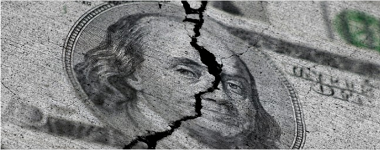QE is a tax.
That’s an odd thing to say about the Fed’s bond-buying stimulus program, known as quantitative easing, or QE. But the reality of QE is different than what most people think…
To talk about this, I sought out Warren Mosler, a former hedge fund manager and now trailblazing economist. (I first introduced Mosler to you in your February letter, No. 120. See “How Fiat Money Works.“) So on one Sunday afternoon, with Mosler in Italy and me in Gaithersburg, Md., we chatted on Skype about the Fed and its doings.

Mosler was also a successful banker, and he talks about this stuff with the ease that comes from deep familiarity with the plumbing of the system. The U.S. system, importantly, is one of floating exchange rates and a nonconvertible currency. Meaning the government does not fix the price of the dollar against anything (contra what is done in Hong Kong, where they peg their currency to the dollar). And it is not convertible into anything except itself. (You can’t present your dollars to the Fed and demand gold, for instance.)
With those parameters, we started with a simple question: What would the natural rate of interest be if the government didn’t try to interfere in the interest rate market? (“Natural rate” in this context means the risk-free, nominal rate of interest.)
“In some sense, QE is undoing what the Treasury has done.”
Well, before we can answer that, think about the ways the government interferes in the interest rate market. There are two ways, Mosler points out. The first is that the government pays interest on bank reserves, which are essentially checking accounts held at the Fed. Currently, that rate is 25 basis points, or 0.25%.
The second is to offer “alternative accounts at the Fed called Treasury securities.” These are essentially savings accounts and pay higher interest than the checking accounts (or reserve accounts).
Mosler said:
“If we eliminated these things, there would no interest paid on reserves, and there would be no securities, So the natural rate of interest would be zero.” Like in Japan for 20 years.

